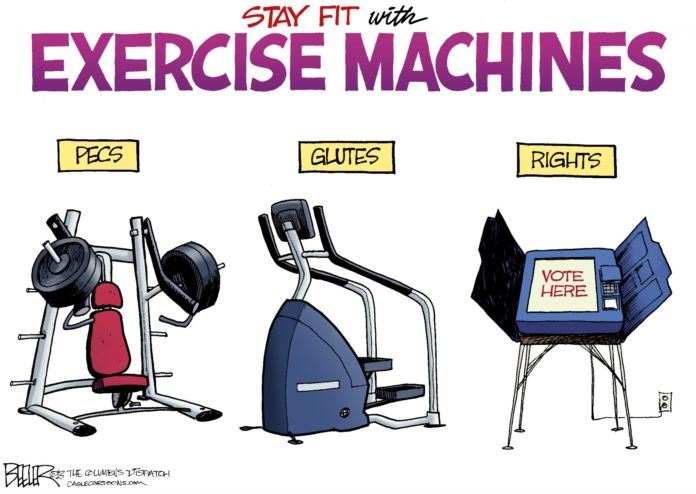BY DAVID PERRYMAN
 One of the classic episodes from the I Love Lucy series involved Lucy’s foray into television advertising. The product she hawked was Vitameatavegamin, an elixir that claimed to be a concentrated drink containing vitamins, meat, vegetables and minerals. Its manufacturer promised that it would help people who were tired, rundown and listless.
One of the classic episodes from the I Love Lucy series involved Lucy’s foray into television advertising. The product she hawked was Vitameatavegamin, an elixir that claimed to be a concentrated drink containing vitamins, meat, vegetables and minerals. Its manufacturer promised that it would help people who were tired, rundown and listless.
Vitameatavegamin also contained 23% alcohol and before the commercials were over, Lucy was … how do you say … three sheets to the wind.
Now Lucille Ball was a comedienne and Vitameatavegamin was a fictitious product; however, before the age of the U.S. Food and Drug Administration, hundreds of unregulated products contained alcohol as their active ingredient.
While browsing in a Missouri antique store a few years ago, I ran across a bottle of Hadacol with a label that listed its 12% alcohol content as a “preservative.” Hadocol was manufactured by Happy Day Company and was the invention of a Louisiana state senator who faithfully took his “medicine” with him when he traveled into dry counties.
Similar remedies and elixirs were a leading income producer for traveling salesmen and purveyors of snake oils throughout the 1800s and long before Oklahoma became a state in 1907.
It is, therefore, no great surprise that the very first attempt to amend the Oklahoma Constitution was the Nov. 3, 1908, vote on State Question No. 1 that related to “the establishment of a state agency and local agencies for the sale of intoxicating liquors for medicinal and scientific purposes.”
On Nov. 4, 2014, Oklahomans will have an opportunity to vote on three state questions and all three relate to members of the military and their families.
SQ 769 has been proposed to clarify a law that could be interpreted to prevent a member of the National Guard, the Reserves or the State Militia from serving as an Oklahoma elected official. A “yes” vote would clearly allow that dual service.
State Questions 770 and 771 both broaden the applicability of a military service based full homestead ad valorem tax exemption.
The applicable exemption was created approximately 10 years ago and currently provides that certain veterans and their surviving spouses are exempt from paying any property tax on their homestead. To qualify, the veteran must be 100% disabled and the disability must be service related. Currently, just over 19,000 veterans and veterans’ spouses claim that exemption.
SQ 770 will extend that exemption and allow the veteran or the veteran’s spouse to immediately transfer the exemption from an old residence to a newly purchased homestead instead of being required to wait until the following year to make a claim for homestead exemption. A “yes” vote will allow that immediate transfer.
SQ 771 makes that same full homestead exemption available to the surviving spouse of a service member who is killed in the line of duty and would allow the exemption to continue until the surviving spouse remarries. A “yes” vote will allow the surviving spouse to claim the same exemption that is claimed by 100% disabled veterans and their spouses.
According to David Blatt, executive director of the Oklahoma Policy Institute, “Both constitutional amendments are within the spirit of SQ 715, which entrenched the principle that members of the military who suffered in war, and their families, are entitled to generous property tax breaks. If the past is any guide, Oklahoma voters should have no problem passing both proposals.”
If you would like to have more information on these state questions, including the economic impact of this exemption, an excellent source of information is the website of the Oklahoma Policy Institute at okpolicy.org/resources/2014-elections.
In 1908, Oklahoma voters rejected SQ 1. In a lawsuit that followed a gubernatorial appointee was sued by a patient who held a valid prescription for one-half pint of whiskey but was unable to have it filled. The litigation went all the way to the Oklahoma Supreme Court that decided that even though state question did not pass, it was invalid, contained too many subjects and it was questionable whether the citizens even understood what they were voting on.
Hopefully, I have assisted in making this year’s three state questions easier to understand.
– David Perryman, a Chickasha Democrat, represents District 56 in the Oklahoma House of Representatives







